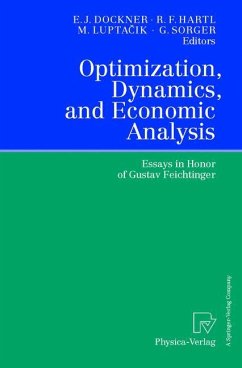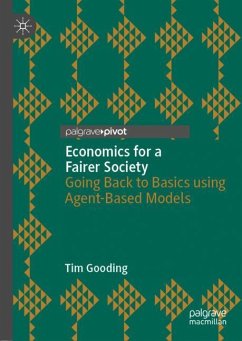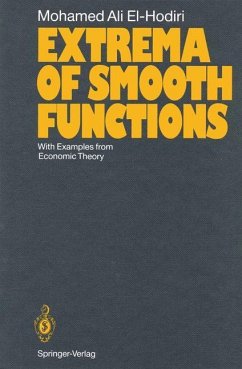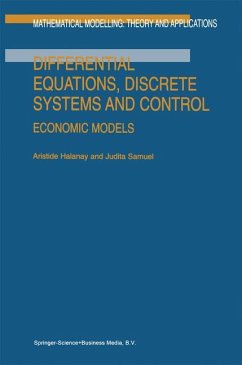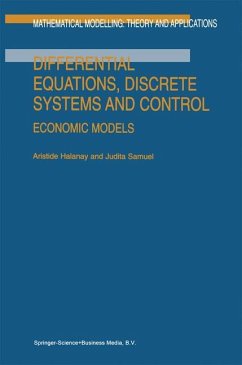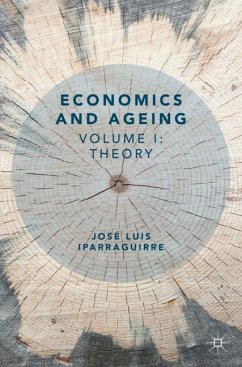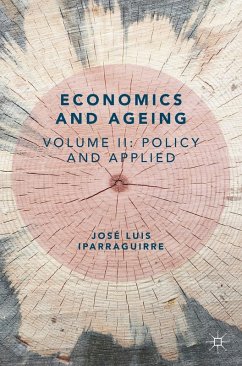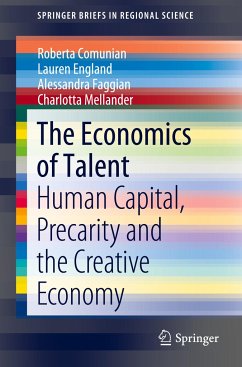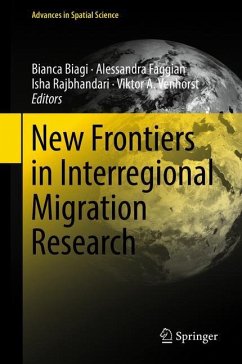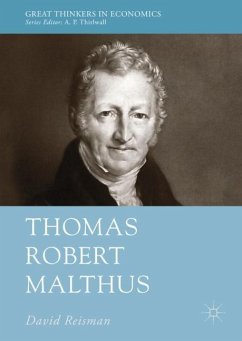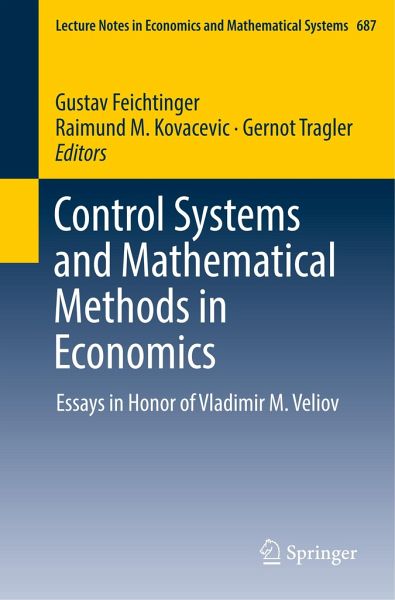
Control Systems and Mathematical Methods in Economics
Essays in Honor of Vladimir M. Veliov
Herausgegeben: Feichtinger, Gustav; Kovacevic, Raimund M.; Tragler, Gernot

PAYBACK Punkte
38 °P sammeln!
Since the days of Lev Pontryagin and his associates, the discipline of Optimal Control has enjoyed a tremendous upswing - not only in terms of its mathematical foundations, but also with regard to numerous fields of application, which have given rise to highly active research areas. Few scholars, however, have been able to make contributions to both the mathematical developments and the (socio-)economic applications; Vladimir Veliov is one of them. In the course of his scientific career, he has contributed highly influential research on mathematical aspects of Optimal Control Theory, as well a...
Since the days of Lev Pontryagin and his associates, the discipline of Optimal Control has enjoyed a tremendous upswing - not only in terms of its mathematical foundations, but also with regard to numerous fields of application, which have given rise to highly active research areas. Few scholars, however, have been able to make contributions to both the mathematical developments and the (socio-)economic applications; Vladimir Veliov is one of them. In the course of his scientific career, he has contributed highly influential research on mathematical aspects of Optimal Control Theory, as well as applications in Economics and Operations Research. One of the hallmarks of his research is its impressive breadth. This volume, published on the occasion of his 65th birthday, accurately reflects that diversity.
The mathematical aspects covered include stability theory for difference inclusions, metric regularity, generalized duality theory, the Bolza problem from a functional analytic perspective, and fractional calculus. In turn, the book explores various applications of control theory, such as population dynamics, population economics, epidemiology, optimal growth theory, resource and energy economics, environmental management, and climate change. Further topics include optimal liquidity, dynamics of the firm, and wealth inequality.
The mathematical aspects covered include stability theory for difference inclusions, metric regularity, generalized duality theory, the Bolza problem from a functional analytic perspective, and fractional calculus. In turn, the book explores various applications of control theory, such as population dynamics, population economics, epidemiology, optimal growth theory, resource and energy economics, environmental management, and climate change. Further topics include optimal liquidity, dynamics of the firm, and wealth inequality.





